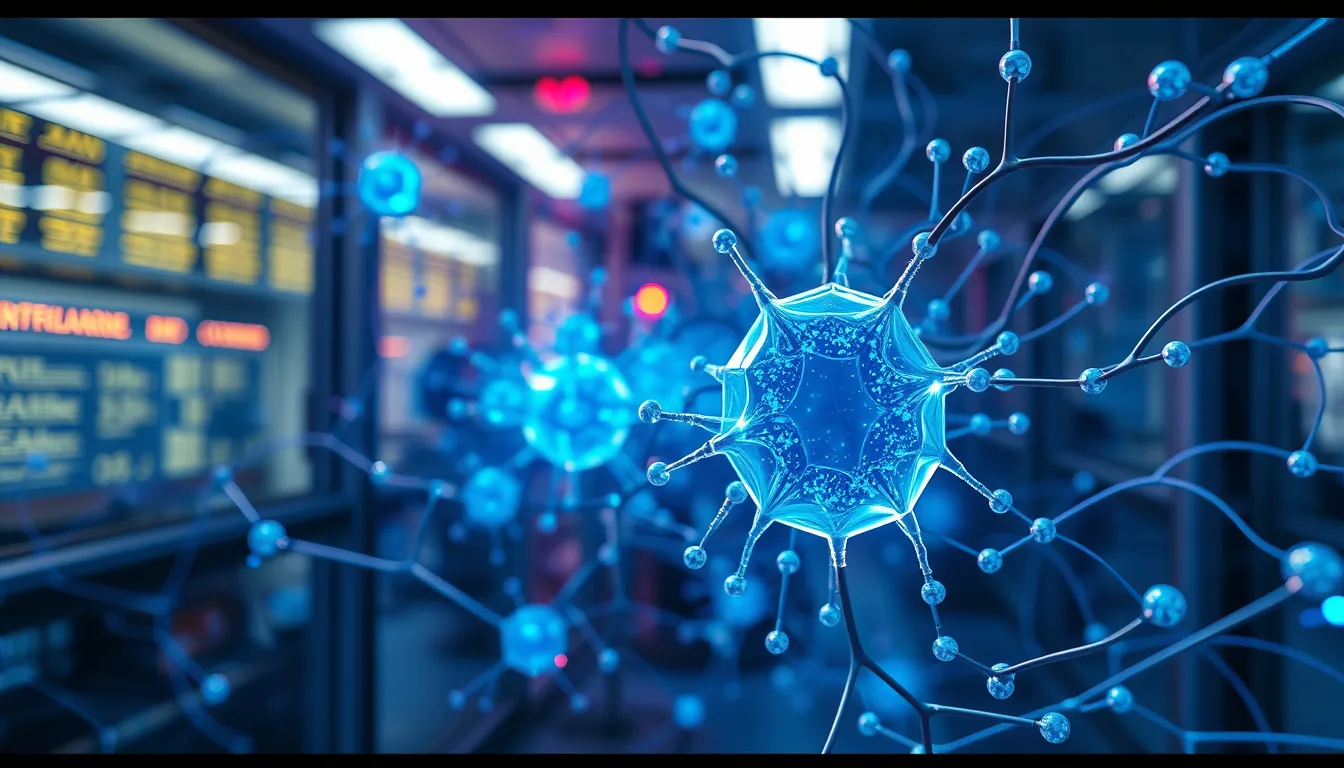Now Reading: Powerful AI in Healthcare Diagnostics: Boosting Patient Care
-
01
Powerful AI in Healthcare Diagnostics: Boosting Patient Care
Powerful AI in Healthcare Diagnostics: Boosting Patient Care

Powerful AI in Healthcare Diagnostics: Boosting Patient Care
In recent years, technology has dramatically transformed how healthcare providers diagnose and treat diseases. Among these innovations, AI in healthcare diagnostics has emerged as a game-changer. With increased accuracy and efficiency, artificial intelligence is revolutionizing the way patients are monitored and treated. In this article, we explore the benefits of AI in healthcare diagnostics, its current applications, and what the future holds for this rapidly evolving field.
The Impact of AI in Healthcare Diagnostics
Artificial intelligence offers numerous advantages in medical settings. By automating data analysis and integrating complex imaging techniques, AI in healthcare diagnostics minimizes errors and accelerates diagnosis. Hospitals and medical centers are now leveraging AI-driven tools to identify anomalies in scans, predict disease progression, and personalize treatment plans. This technology is steadily replacing some of the more traditional, manual methods once used in diagnostics.
Key Benefits of AI in Healthcare Diagnostics
- Enhanced Accuracy: AI systems are trained on vast data sets, allowing for precise detection of irregularities that might escape the human eye.
- Faster Results: Automated systems can analyze medical images in a fraction of the time it takes for manual reviews, which is critical in emergency situations.
- Resource Optimization: By reducing the workload on medical professionals, AI allows healthcare providers to allocate resources more efficiently.
Each of these points highlights how AI transforms the healthcare landscape by providing consistent, reliable, and rapid diagnostic support. For instance, medical imaging software powered by AI can quickly analyze thousands of images, thereby streamlining workflows and reducing overall patient wait times.
How AI in Healthcare Diagnostics Improves Patient Outcomes
There are several ways through which AI in healthcare diagnostics contributes directly to patient care. Advanced analytics detect patterns that are often imperceptible to human clinicians. With machine learning algorithms, AI can interpret complex data from imaging techniques, laboratory tests, and patient records to offer detailed insights into a patient’s condition.
AI Applications in Medical Imaging and Beyond
One of the primary areas of application is medical imaging. Techniques like MRI, CT scans, and X-rays benefit from AI’s precision. This technology helps in:
- Early Detection: AI algorithms can identify early-stage diseases, such as cancer, with remarkable precision, allowing for earlier intervention and improved survival rates.
- Disease Prediction: By analyzing historical patient data, AI systems forecast future health risks and potential complications.
- Enhanced Image Analysis: Computer-aided detection systems use AI to offer detailed image analysis, reducing the likelihood of misdiagnosis.
Furthermore, AI is not just limited to imaging. Predictive models assist in overall patient risk assessment and treatment plan formulation. Hospitals may use AI-driven platforms to manage patient data and predict bottlenecks, improving overall efficiency and patient satisfaction.
Challenges and Considerations in Adopting AI
Despite the promise of AI in healthcare diagnostics, there are challenges to consider. Data privacy, integration with existing systems, and the need for regulatory oversight present obstacles that must be carefully navigated. Moreover, while AI is a powerful tool, it should complement, not replace, the expertise of skilled healthcare professionals.
- Data Security: Ensuring patient data is handled securely is a top priority. Complying with regulations such as HIPAA is essential in AI implementation.
- Integration: Healthcare institutions may face difficulties incorporating AI into existing IT frameworks without causing significant disruptions.
- Training and Adaptation: Medical staff must receive adequate training to work with these advanced diagnostic tools.
The Future of AI in Healthcare Diagnostics
Looking ahead, the potential of AI in healthcare diagnostics is vast. The continuous improvement of algorithms and the increasing integration of AI tools are setting the stage for more personalized, data-driven patient care. Innovations in AI promise to further enhance diagnostic accuracy, reduce healthcare costs, and ensure timely treatment interventions.
Conclusion
AI in healthcare diagnostics stands at the forefront of medical innovation. This breakthrough not only improves the accuracy of diagnoses but also supports medical professionals with rapid, data-driven insights that can lead to better patient outcomes. As the technology advances, we can expect even greater enhancements in how diseases are detected, managed, and treated.
For those interested in more technological developments in healthcare, visit the official website of OpenAI for further reading. Additionally, hospitals can integrate internal systems or patient portals to continually update professionals on cutting-edge advancements.
In summary, the integration of AI in healthcare diagnostics represents a fusion of technology and medicine. It is not merely a trend but a transformative shift in delivering patient care. By adopting AI, healthcare providers can ensure enhanced diagnostic accuracy, faster processing times, and ultimately, better outcomes for patients worldwide. Embracing this technology is essential for the future of modern medicine and reinforces the need for continuous innovation in the healthcare industry.

























